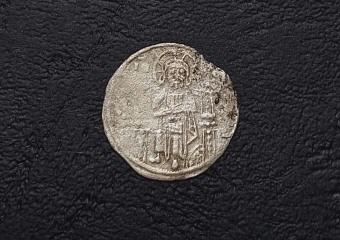The Feast of Transfiguration and the meaning of purifying and liberating from suffering
 On the occasion of the 116th anniversary of the Ilinden-Preobrazhenie Uprising (1903)
On the occasion of the 116th anniversary of the Ilinden-Preobrazhenie Uprising (1903)
According to the gospel, the Jewish people did not see the Messiah in Christ; they hoped that he would free them from the slavery and sit on the throne of David. They did not understand that the prophecies spoke of the heavenly, not the earthly kingdom, the eternal goods, not the earthly glory. Jesus Christ often talked with his disciples that he would have suffering, but after that he would rise again and bring salvation for souls. To strengthen their faith, he appeared to three of the apostles - Peter, James and John in heavenly glory. He climbed the Tabor Mount with them near Galilee, where he changed, his face changed and glowed like the sun, and his clothes turned white as snow. Two more men shining in glory - Moses and Elijah accompanied the vision. A bright cloud overshadowed them all, and a voice was heard from the cloud, saying, "This is my beloved Son, in whom it is my pleasure, hear him!" (Matthew 17: 5) The disciples heard the voice of God Himself, and the two prophets Moses and Elijah testified by their manifestation that Jesus was really the One whom the prophets foretold.
It was at Transfiguration (6 August) that 116 years ago the Bulgarians of Edirne Thrace took the path of their suffering, joining with arms to their already rebellious brethren from Macedonia in order to become free. The Ilinden–Preobrazhenie Uprising lasted for three months, from July 20 to the beginning of October 1903, more than 260 battles took place, in which the Ottoman army suffered heavy casualties and the fate of thousands of Bulgarians changed forever. The categorical result - the brutal plan of the High Gate for the ethnic cleansing of Bulgarians in Macedonia and Thrace is thwarted! "The revolution wants sacrifices," Hristo Matov said at the time. "We knew it, with the uprising we took the first step and we will do more until we are free!"
At that historical moment, the Ottoman Empire intended to solve the Macedonian question by diluting the population of the two populations in the two regions so as to make meaningless any claim to Bulgaria. In other words, he plans to repeat the brutal feud with the Armenians. This idea was solved by the leaders of the IMORO and the Ilinden–Preobrazhenie Uprising, though tragically, frustrates him. It was not unsuccessful, because after that the Murtzschag reform program was created and Bulgaria signed a treaty with the Ottoman Empire in 1904, under which amnesty was granted to all participants in the uprising and to the refugees to return. If the Ottoman Empire was feeling, then would the winner sign such a treaty? The uprising ended with a victory, and because it inspired such respect in the Ottoman army from the detachments of the internal organization that it subsequently avoided direct clashes with them for a long time, and ten years later in the Balkan War, even in the first battles, it panicked in Odrin Thrace. . And one more important thing - all this impulse and energy for liberation displayed by the rebels are entirely Bulgarian.
<i> Ivanka Deleva, Chief Editor of the History Department. Excerpts from an interview of Prof. Svetlozar Eldarov, Institute of Balkan Studies with the Center for Thracology at BAS, Fokus Radio, July 20, 2019 were used.


Comments
comments powered by Disqus